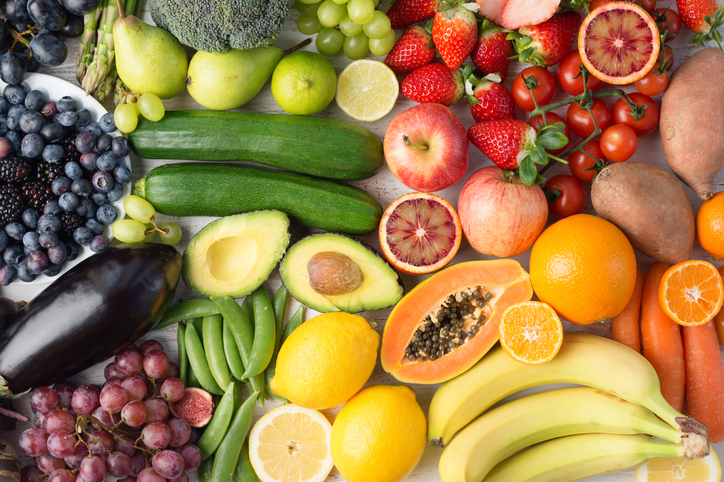Every year the Environmental Working Group (EWG)(1), a non-profit, non-partisan organization dedicated to protecting human health and the environment, publishes the a shopper’s guide regarding pesticides in produce. The EWG’s 2019 Shopper’s Guide to Pesticides in Produce™ is also known as the Dirty Dozen™ and the Clean Fifteen™.
Organic foods offer a wonderful way to get the quality nutrition you need without the harmful pesticides and chemicals found in non-organic foods. The Dirty Dozen™ list guides you to produce you should always buy organic, while the Clean Fifteen™ lists fruits and vegetables that use the least amount of pesticides.
The Dirty Dozen™
The Dirty Dozen™ are twelve foods that you should buy organic whenever possible. If you have a limited budget for organic foods, these are the items from the produce section that you should spend your money on. Remember that the foods of the dirty dozen have a high level of pesticides that could hamper your natural healing efforts.
According to EWG’s 2019 Shopper’s Guide to Pesticides in Produce™, the dirty dozen include:
- 1. Strawberries
- 2. Spinach
- 3. Kale
- 4. Nectarines
- 5. Apples
- 6. Grapes
- 7. Peaches
- 8. Cherries
- 9. Pears
- 10. Tomatoes
- 11. Celery
- 12. Potatoes
The Clean Fifteen™
The Clean Fifteen™ are foods that don’t need to be organic to get the best quality, the least amount of pesticides, and optimal natural health. Some of these fruits and veggies don’t retain pesticides, or very few pesticides are used in their production. Buy these foods as conventional produce and save your money for the dirty dozen.
The clean fifteen include:
- 1. Avocados
- 2. Sweet Corn*
- 3. Pineapples
- 4. Sweet Peas Frozen
- 5. Onions
- 6. Papayas*
- 7. Eggplants
- 8. Asparagus
- 9. Kiwis
- 10. Cabbages
- 11. Cauliflower
- 12. Cantaloupes
- 13. Broccoli
- 14. Mushrooms
- 15. Honeydew Melons
* A small amount of sweet corn, papaya and summer squash sold in the United States is produced from genetically modified seeds. Buy organic varieties of these crops if you want to avoid genetically modified produce.
Remember that local foods aren’t always organic, but you can find local farmers whose produce has fewer pesticides than those found in the supermarket. Local and organic foods are good for natural healing and can be wonderful additions to your holistic health plan.
Call us at (800) 993-4325 to learn more about our body-mind-spirit programs, in San Diego and Austin, today. If you want to find out more about holistic health and more tips on eating healthy foods in California, come to Optimum Health Institute.
(1) Environmental Working Group; https://www.ewg.org/

